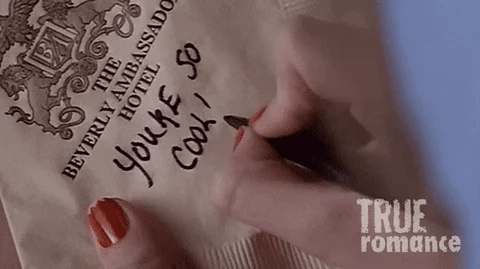Let’s talk about Hans Zimmer’s You’re So Cool, the glimmering heartbeat of True Romance.
It’s a love letter, a sonic tip of the hat, a blatant homage to Carl Orff and Gunild Keetman’s Musica Poetica, as heard in Terrence Malick’s Badlands. Zimmer didn’t just borrow a vibe; he grabbed the mood, the bones, the very essence of Orff and Keetman’s piece and threw it into the technicolor whirlwind of Tony Scott’s True Romance. Malick’s Badlands was all pastoral and haunting, using Orff’s melody to underscore the doomed lovers on their grim trek. Zimmer, ever the alchemist, took that same melody and turned it into something brighter, bouncier, and dripping with ironic sweetness — perfect for the messy, candy-colored carnage of True Romance.
It’s the kind of artistic thievery that doesn’t hide its fingerprints. Zimmer’s work here is an open wink, a "yeah, I went there, and I’m damn proud of it." And why not? Orff and Keetman’s minimalism brought weight and gravity to Badlands, and Zimmer flipped it into a sugar-rush dream for Clarence and Alabama. It’s a masterclass in how music doesn’t just follow a scene but redefines its emotional architecture.
And by the by, this is the piece of Orff’s music with you are undoubtedly familiar, a piece he acknowledges as the beginning and end of his obituary:
Here’s where things get particularly spicy: Ennio Morricone. The maestro himself. The man who wrote soundtracks so iconic they’ve got their own genre of cool. And yet, even Morricone wasn’t immune to the fickle beast of critical reception.
Enter John Carpenter’s The Thing. You know it — snowbound paranoia, body horror, flamethrowers. Carpenter, a composer in his own right, handed the reins to Morricone, asking for something that fit Carpenter’s own minimalist, synth-heavy style. Morricone delivered a score that was cold, unsettling, and deeply atmospheric — basically the sonic equivalent of an alien organism waiting to rip you apart. Critics, bless their myopic souls, tore it to shreds. It even got a Razzie nomination. A Razzie! For Morricone! Like giving Michelangelo a D-minus for the Sistine Chapel because you don’t like angels.
Fast forward a few decades, and (re)enter Quentin Tarantino, the man who wrote True Romance our cinephile agent provocateur. Tarantino, of course, has a knack for pulling the overlooked and underappreciated out of the dustbin of history and shoving it back into the spotlight. For The Hateful Eight, he calls up Morricone, now well into retirement, and asks him to score the film. Oh, and while he’s at it, Tarantino decides to include unused pieces from Morricone’s The Thing score. When you consider both films in totality, they’re frighteningly similar. The films share a claustrophobic setting where distrust and paranoia drive the story, with characters trapped in a remote, snow-covered location. Both films feature an ensemble cast of morally ambiguous characters, each harboring secrets and potential threats to the group. Violence erupts as suspicions grow, exposing the darker sides of human nature under pressure.
Morricone wins an Academy Award for The Hateful Eight. The same musical sensibilities that critics scoffed at in 1982 are now celebrated as genius. It’s delicious poetic justice, the kind of narrative arc Hollywood itself couldn’t script better. And let’s not ignore the sexy irony: Morricone gets his Oscar for working on a film that nods back to a score he wrote in the style of Carpenter, a filmmaker who often bypassed traditional Hollywood gatekeepers altogether.
Orff to Zimmer. Morricone to Carpenter to Tarantino to and with Scott. It’s a wild ouroboros of influence, homage, and reclamation. These are cultural artifacts, passed down, reinterpreted, and elevated. The critics who didn’t get it the first time? They’re footnotes now. The music lives on, defining eras, films, and moments long after the reviews have faded into irrelevance.
In the end, it’s a sensational reminder of why we I return to this stuff. The connections. The nods. The winks across time and style and medium. Whether it’s Zimmer playing Orff’s melody like a love-struck DJ or Tarantino resurrecting Morricone’s forgotten notes, it’s all part of the same beautiful, messy conversation that keeps cinema alive. And, damn, aren’t we lucky to listen in?





Thanks! I love Ennio and TRUE ROMANCE and pretty much everything else covered here.